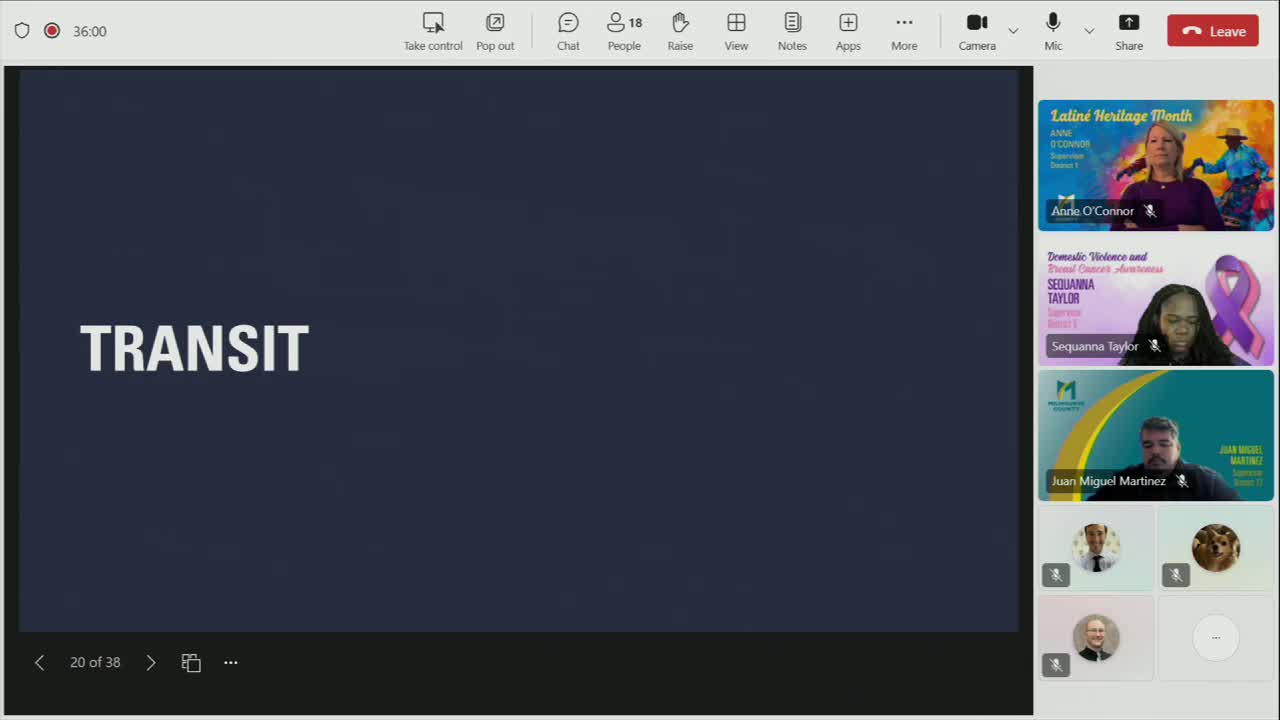Milwaukee County transit faces $14.3 million shortfall; service cuts, fare increase and vehicle-registration fee hike proposed
Get AI-powered insights, summaries, and transcripts
Subscribe
Summary
County officials say the Milwaukee County Transit System faces a structural budget gap that the 2026 recommended budget addresses with route eliminations, service reductions, a fare increase and a potential rise in the vehicle-registration fee; officials and supervisors discussed the tradeoffs and longer-term risks.
Milwaukee County officials told the Committee on Finance that the Milwaukee County Transit System (MCTS) faces a growing structural shortfall that the recommended 2026 budget addresses with service cuts, a fare increase and possible higher local fees.
The county’s budget overview by Steven Cady, director of research and policy for the Office of the Comptroller, said the transit gap for 2026 is about $14,300,000 and that officials plan to close that shortfall through a combination of route eliminations, service changes and a fare increase. The recommended changes include eliminating six routes, modifying five more routes, cutting frequency on others and raising bus fares from $2.00 to $2.75 in the county’s projection of revenue enhancements.
Why it matters: MCTS has not returned to pre-pandemic ridership even though vehicle service hours remain high, officials said. The county has used one-time pandemic federal aid and other temporary sources to support transit; those sources are winding down, creating recurring annual gaps unless new permanent revenues are identified.
Details of the proposed tradeoffs in the 2026 recommendation were presented as: six routes eliminated, five routes modified and a general set of frequency reductions and service adjustments expected to save about $3,500,000. The fare increase is projected to generate about $5,300,000. The county also identified the vehicle-registration fee (VRF) as a local revenue lever: the fee is currently $30 and, according to the presentation, would need to rise to $55 in 2026 to fully avoid the recommended service cuts and fare increase; to prepare for both the 2027 gap and 2026, the presentation said the VRF would need to reach $80 under an assumed scenario that relies on the VRF as the primary local revenue source.
Supervisors pressed administration staff and the new government affairs director about state and federal advocacy to secure additional transit funding. County officials said state-level appropriations have been advocated for in prior budgets but that legislative and federal uncertainty makes near-term additional statewide funding unpredictable. Several supervisors said they would oppose increases to the vehicle-registration fee and urged intensified state and federal advocacy.
What remains unresolved: The county’s presentation and subsequent discussion made clear that the 2026 recommendation closes the immediate gap with reductions and revenue steps, but that a multi-year structural fix was not included in the recommendation. Officials warned of an additional roughly $14 million-plus gap in 2027 if durable new revenues or permanent expenditure reductions are not found.
Ending: MCTS officials are scheduled to appear at the finance committee the following Monday to present specifics and take public testimony; supervisors signaled the committee will continue to seek alternatives to protect transit service, while noting political constraints on state and federal funding sources.
